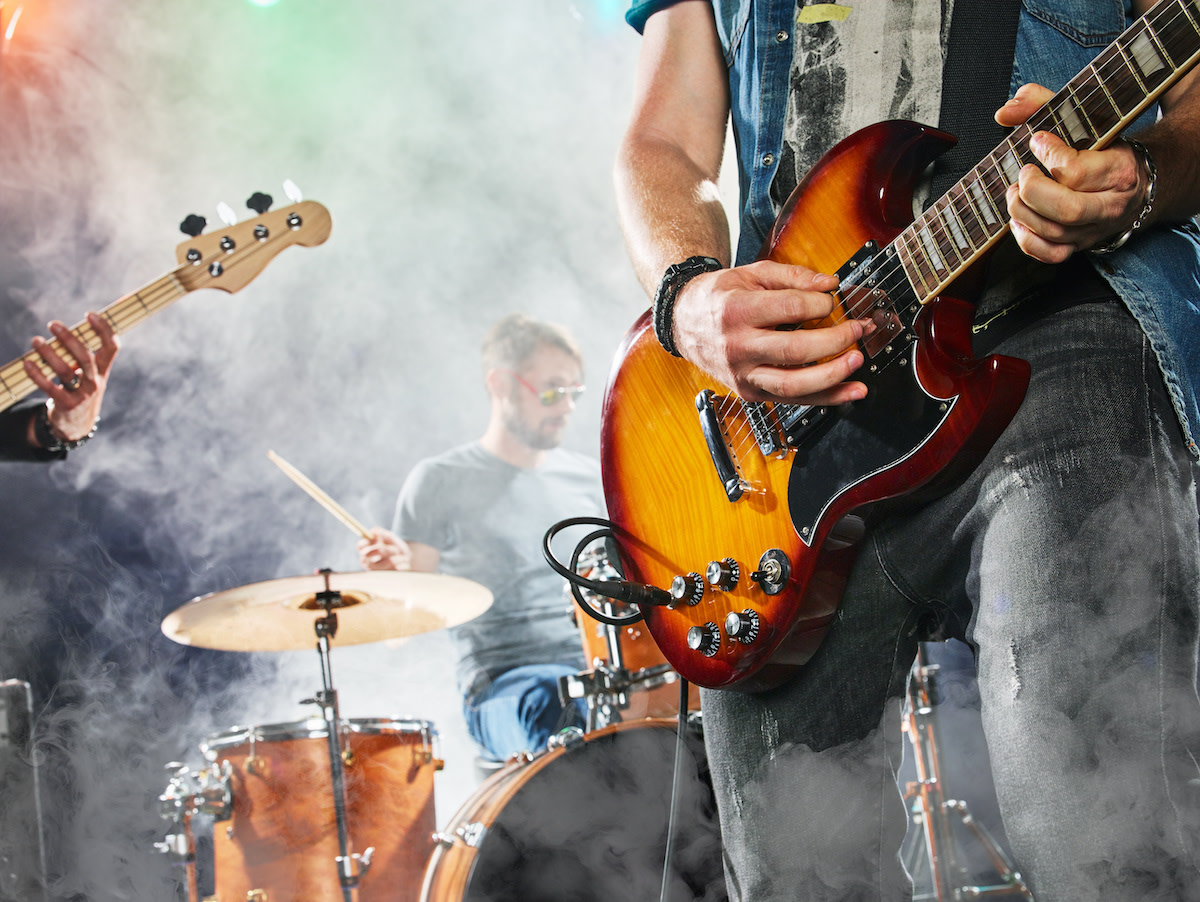Arena Rock Music Guide: 5 Famous Arena Rock Bands
Written by MasterClass
Last updated: Jun 7, 2021 • 4 min read
The bombastic, radio-friendly hard rock music of the 1970s, 1980s, and 1990s is often grouped under the moniker of arena rock.
Learn From the Best
What Is Arena Rock?
Arena rock is a pop/rock subgenre made up of bands who could pack a sports stadium for a one-night event. Arena rockers are known for their radio-friendly anthemic choruses, high-spectacle stage shows, and accessible lyrics that make them popular with a wide array of fans.
A Brief History of Arena Rock
The term “arena rock” typically describes chart-topping rockers from the 1970s through the 1990s, but rock music in stadiums goes back to the 1960s.
- The first stadium show: In 1965, The Beatles played the first open-air stadium rock concert at New York's Shea Stadium. At the time, The Beatles' appeal was so massive, it was impractical for them to play indoor theaters and nightclubs like the rockers who had come before them. The Beatles went on to play sold-out stadium tours throughout the ’60s, and other early classic rock acts like the Rolling Stones and the Beach Boys quickly adopted the same formula.
- The sound of the 1970s: Arena rock expanded in the 1970s as guitar music became broadly popular. Mainstream rock acts like Led Zeppelin, Aerosmith, Queen, David Bowie, AC/DC, KISS, Peter Frampton, Blue Öyster Cult, and Cheap Trick took their acts to sports arenas.
- Album-oriented rock: By the late ’70s, the arena rock scene migrated toward what was known as album-oriented rock, or AOR. With roots in the progressive rock movement, AOR was best known for power ballads and epic song structures. Styx, Journey, Foreigner, Boston, Kansas, and REO Speedwagon were among the stars of this branch of arena rock.
- Return to hard rock: By the 1980s, the bands playing arenas took on a harder edge. Led by the jaw-dropping antics of Van Halen, a new wave of arena rockers turned their focus back to bluesy riffs, sexuality, and swagger. Guns N' Roses, Mötley Crüe, Bon Jovi, and a revived Aerosmith helped lead this charge. Some heavy metal bands like Metallica and Iron Maiden were also able to fill arenas on a nightly basis. In the 1990s, certain alternative rock groups also enjoyed arena-packing status—including Nirvana, Foo Fighters, Pearl Jam, and Soundgarden.
- Legacy bands: Guitar-based rock music may not top the charts as it once did, but rock bands like System of a Down, Radiohead, Queens of the Stone Age, and the Killers continue to sell out arenas. Legacy rock bands like the Rolling Stones, Guns N' Roses, Bon Jovi, Metallica, and Iron Maiden continue to fill arenas and stadiums as well—sometimes with the same fans who first saw them decades ago.
4 Characteristics of Arena Rock Music
Several distinct traits help define arena rock music.
- 1. Guitar as the featured instrument: Arena rock most commonly refers to the guitar-based rock of the 1970s, 1980s, and 1990s. Along with big vocal stars like Steven Tyler, Jon Bon Jovi, and Axl Rose, the genre has produced famous guitarists like Eddie Van Halen, Slash, and Jimmy Page.
- 2. Spectacle: Many of the top arena rockers take cues from glam rock and theater to offer a show filled with spectacle.
- 3. Power ballads: Many arena rock bands—particularly those from the AOR era of the late ’70s and early ’80s—built their fame on the strength of power ballads. From the KISS hit "Beth" to the Journey song "Lights" to Aerosmith's "Angel," moody ballads have helped shape the genre.
- 4. Predictability: Compared to their forebears in progressive rock, arena rockers are more likely to rely on a proven formula involving commercial sponsors and music designed for mass appeal.
5 Famous Arena Rock Bands
Several arena rock musicians have enjoyed storied careers and earned spots in the Rock and Roll Hall of Fame.
- 1. Aerosmith: Boston quintet Aerosmith debuted in the 1970s as a dramatic blues-rock band in the vein of the Rolling Stones. They enjoyed many hits in the 1970s, faded in the early 1980s, and then enjoyed a career revival when rappers Run-D.M.C. chose to cover "Walk This Way." The band rode this wave to many other hits in the late ’80s and early ’90s.
- 2. Bon Jovi: New Jersey's Bon Jovi has spent decades packing areas and stadiums with slick, poppy takes on hard rock music. Hits like "Livin' on a Prayer" and "Wanted Dead or Alive" remain staples of both arenas and karaoke bars.
- 3. Journey: One of the stalwarts of the AOR era of arena rock, Journey transformed from a bluesy San Francisco band made up of Santana alumni to a corporate rock juggernaut famous for anthems like "Any Way You Want It" and "Don't Stop Believin'."
- 4. Guns N' Roses: Guns N' Roses started on the Sunset Strip of Los Angeles, playing hyper-charged blues-rock that showed obvious influence from Aerosmith, Queen, and the Rolling Stones by way of punk rock. As fame propelled the band into arenas, its members—particularly frontman Axl Rose—chose to embrace experimentation rather than recycle formulas. Despite numerous lineup changes, the present band (featuring Rose and famed members Slash and Duff McKagan) once again headlines stadiums around the globe.
- 5. AC/DC: AC/DC reached arena-rock status with a proven sound, to which they've proudly remained true for decades. Hits like "You Shook Me All Night Long," "Thunderstruck," and "Back in Black" continue to enthrall arena audiences, and new offerings provide similar sonic appeal.
Want to Learn More About Music?
Become a better musician with the MasterClass Annual Membership. Gain access to exclusive video lessons taught by the world’s best, including Carlos Santana, St. Vincent, Sheila E., Timbaland, Itzhak Perlman, Herbie Hancock, Tom Morello, and more.
